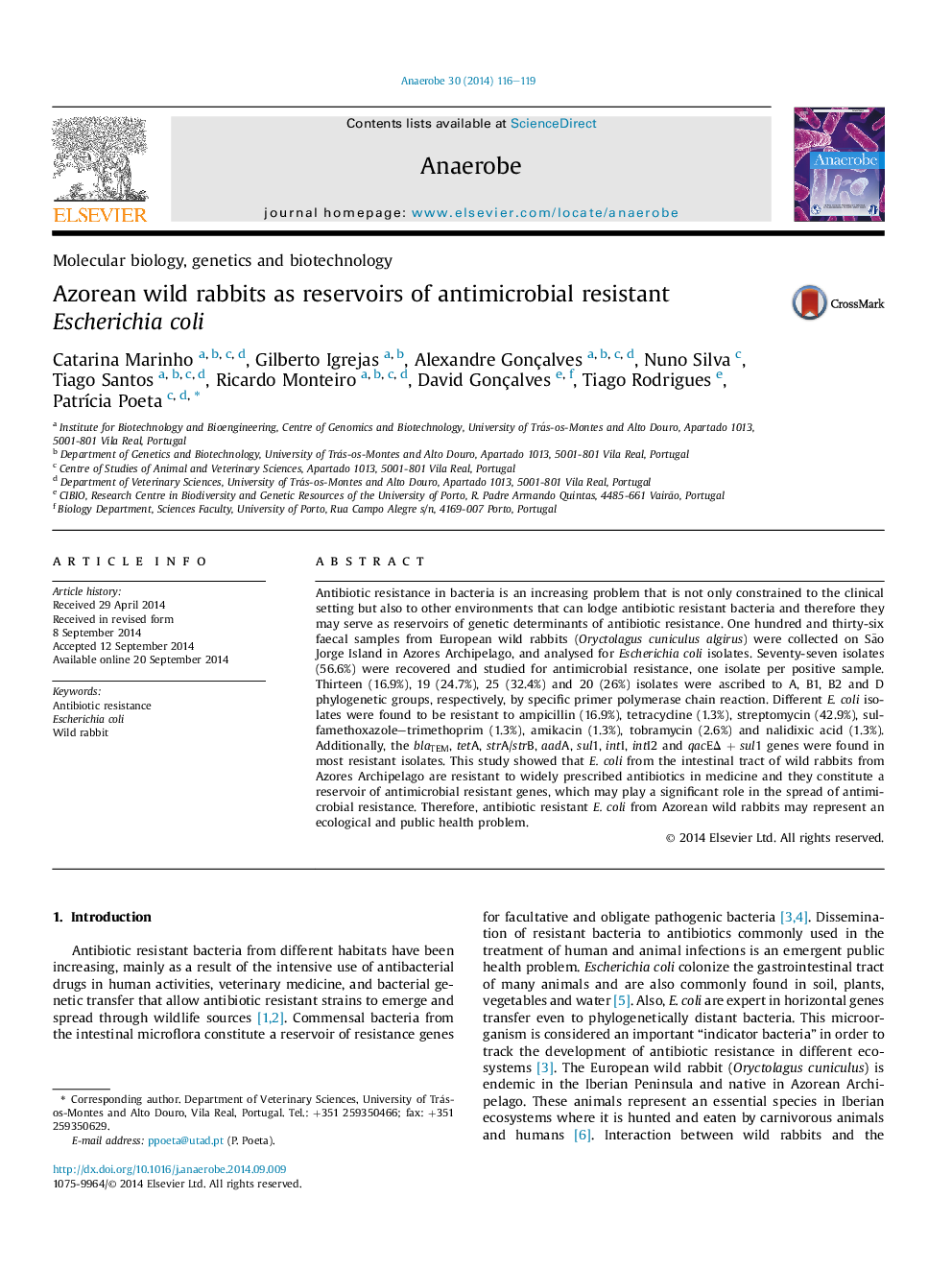| کد مقاله | کد نشریه | سال انتشار | مقاله انگلیسی | نسخه تمام متن |
|---|---|---|---|---|
| 3395033 | 1592833 | 2014 | 4 صفحه PDF | دانلود رایگان |
• The antibiotic resistance profile of Escherichia coli from Azorean wild rabbits was examined.
• E. coli isolates were resistant to AMP, TET, STR, STX, AK, TOB and NAL.
• blaTEM, tetA, strA/strB, aadA, sul1, intI, intI2 and qacEΔ + sul1 genes were found.
• E. coli of wild rabbits are resistant to antibiotics widely prescribed in medicine.
• Azorean wild rabbits constitute a reservoir of antibiotic resistant E. coli.
Antibiotic resistance in bacteria is an increasing problem that is not only constrained to the clinical setting but also to other environments that can lodge antibiotic resistant bacteria and therefore they may serve as reservoirs of genetic determinants of antibiotic resistance. One hundred and thirty-six faecal samples from European wild rabbits (Oryctolagus cuniculus algirus) were collected on São Jorge Island in Azores Archipelago, and analysed for Escherichia coli isolates. Seventy-seven isolates (56.6%) were recovered and studied for antimicrobial resistance, one isolate per positive sample. Thirteen (16.9%), 19 (24.7%), 25 (32.4%) and 20 (26%) isolates were ascribed to A, B1, B2 and D phylogenetic groups, respectively, by specific primer polymerase chain reaction. Different E. coli isolates were found to be resistant to ampicillin (16.9%), tetracycline (1.3%), streptomycin (42.9%), sulfamethoxazole–trimethoprim (1.3%), amikacin (1.3%), tobramycin (2.6%) and nalidixic acid (1.3%). Additionally, the blaTEM, tetA, strA/strB, aadA, sul1, intI, intI2 and qacEΔ + sul1 genes were found in most resistant isolates. This study showed that E. coli from the intestinal tract of wild rabbits from Azores Archipelago are resistant to widely prescribed antibiotics in medicine and they constitute a reservoir of antimicrobial resistant genes, which may play a significant role in the spread of antimicrobial resistance. Therefore, antibiotic resistant E. coli from Azorean wild rabbits may represent an ecological and public health problem.
Figure optionsDownload as PowerPoint slide
Journal: Anaerobe - Volume 30, December 2014, Pages 116–119
